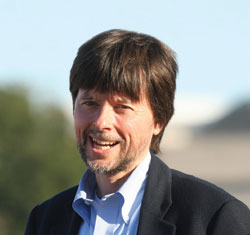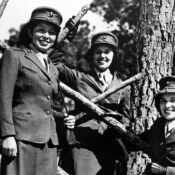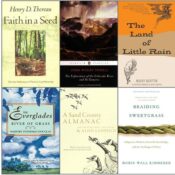Ken Burns first gained national attention and acclaim with his 1981 PBS special on the construction of the Brooklyn Bridge — a show that earned him an Oscar nomination. Since then, Burns has turned his eye to numerous aspects of American history from the Civil War to baseball and prohibition. His latest project, The Address, focuses on a school that helps learning-disabled kids by challenging them to memorize and deliver the Gettysburg Address.
Jeanne Wolf: What got you interested in history?
Ken Burns: My mother died of cancer when I was 11. That is a crucible that still affects me. I think about her every day. I wouldn’t be doing what I do if had I not had to go through the pain of anticipating of her death and, then, all the years of trying to not deal with it. So, what do I do for a living? I wake the dead. I make films that make Abraham Lincoln and Jackie Robinson come alive. Who else do you think I’m trying to wake up?
JW: Why do your films always seem to go beyond the bare facts?
KB: We live in a rational world in which one plus one equals two. But if we examine our hearts or our art, we find that we really want one plus one to equal three. The combination of two things — a man and a woman in love, brush strokes on a canvas, the emotion of a song — we want it to add up to something more. I’m always reaching for those moments in life and in film.
JW: There’s a lot of cynicism about world leaders and politicians past and present. Do they deserve it?
KB: We think that our heroes should be perfect, but if you go back to the Greeks you discover that heroes aren’t perfect. They have very obvious strengths and maybe not so obvious weaknesses, and it’s the negotiation between those two that defines heroism — whether it’s Abraham Lincoln or the Roosevelts or, for a more current example, Chris Christie. But studying the past arms you with a kind of optimism, because when people say, “It’s so bad right now with this economic meltdown that it’s like the Depression,” I can answer, “No, it’s not. During the Great Depression, in some cities, the animals in the zoo were shot and the meat distributed to the poor. Is that happening now?”
The world is chaotic and we’re trying to figure out some order. The painter puts a frame around it; the playwright puts a proscenium arch above it; a documentarian puts it on a screen. We invent stories, we tell them to each other. We achieve a kind of immortality with the stories that we tell and that’s the way we abolish the wolf at the door that’s gonna come knocking eventually.
Become a Saturday Evening Post member and enjoy unlimited access. Subscribe now



